Years post-pandemic, some out-of-work Michiganders are waiting on unemployment benefits
Nearly four years since the onset of the COVID-19 pandemic, some Michigan workers are still stuck fighting for unemployment insurance benefits they were owed years ago.
Most of these claimants lost work in the pandemic as businesses closed their doors and people stayed home. They filed for benefits at some point and were told they were eligible. Some of these claimants received a portion of the benefits they were entitled to. Others have yet to receive any money at all.
Attorneys for some of these claimants say they're in an unprecedented situation. Some are appealing favorable decisions for their clients just to get in front of an administrative law judge (to which unemployment insurance appeals are referred) in hopes that the judges will force Michigan's Unemployment Insurance Agency to pay their clients. These attorneys also have filed appeals and lawsuits, both for an individual client and on behalf of a class, in circuit, state and federal courts.
These actions, though, don't necessarily lead to their clients getting paid. Administrative law judges will say they don't have the power to force the UIA to pay claimants, these attorneys say. The judges may then suggest they appeal to the Unemployment Insurance Appeals Commission, which rules on appeals of decisions made by an administrative law judge. The commission, too, will say it doesn't have the authority to force the UIA to pay these claimants, these attorneys say, and will suggest appealing to circuit court.
That ultimately means it will take even longer for claimants to receive benefits, if at all, because it can take months to get a hearing in front of a judge scheduled.
That's time these claimants don't have, Tony Paris, a lead attorney at the Sugar Law Center for Economic and Social Justice in Detroit, said to the Detroit Free Press earlier this year. Paris has represented unemployment insurance claimants for about 15 years and said his current clients, after surviving a global pandemic without much support, if any, from unemployment insurance benefits system are on the brink of poverty.
Rafael Sanchez, 68 and a Detroit resident, has been surviving off his Social Security payments, and has just enough money each month to pay his utility bills and buy groceries.
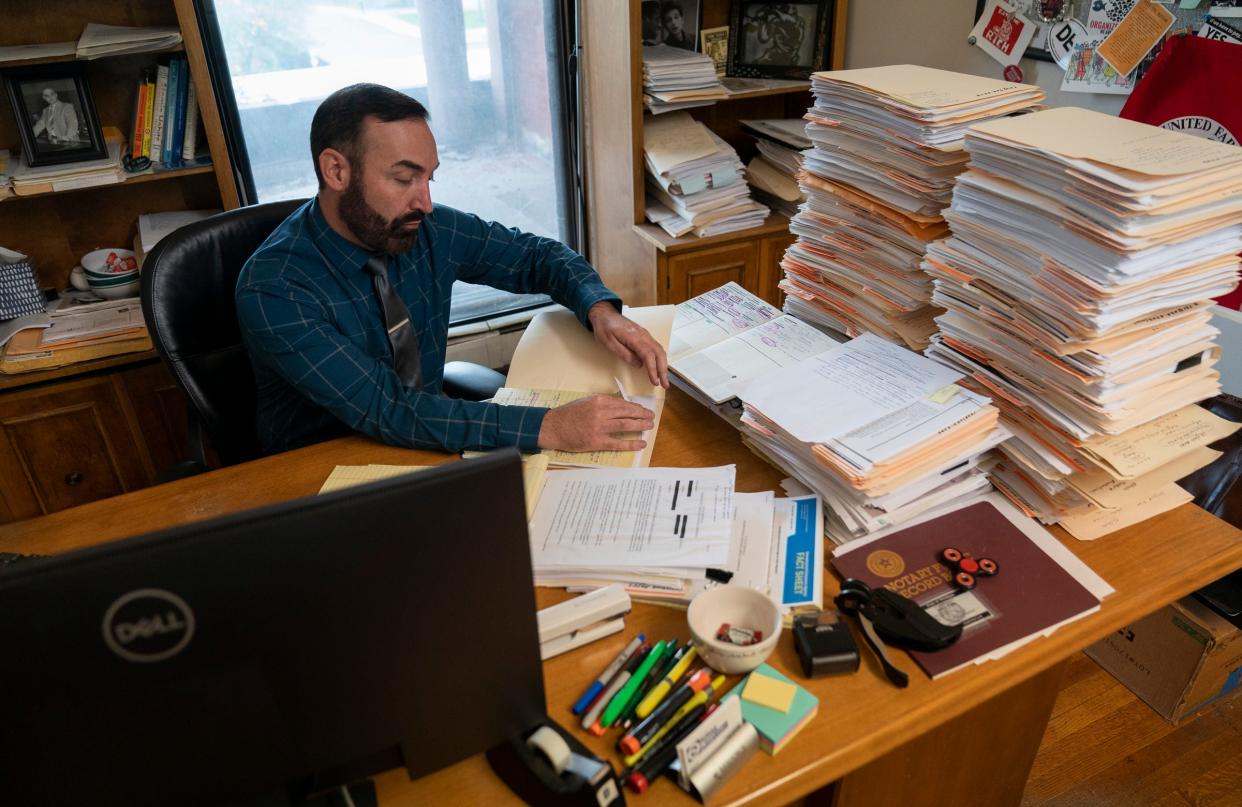
Sanchez filed for benefits in 2021 after work was barely trickling in at the automotive repair business he ran out of his garage for more than five years.
He closed his auto repair shop in the pandemic, confident the unemployment insurance money would give him enough of a cushion to better prepare him for retirement.
Sanchez was approved for 58 weeks of benefits and is owed as much as $27,000. Despite an ALJ ruling in July that he is eligible for benefits, he has yet to receive any unemployment insurance checks.
"It's like a horror movie," he said.
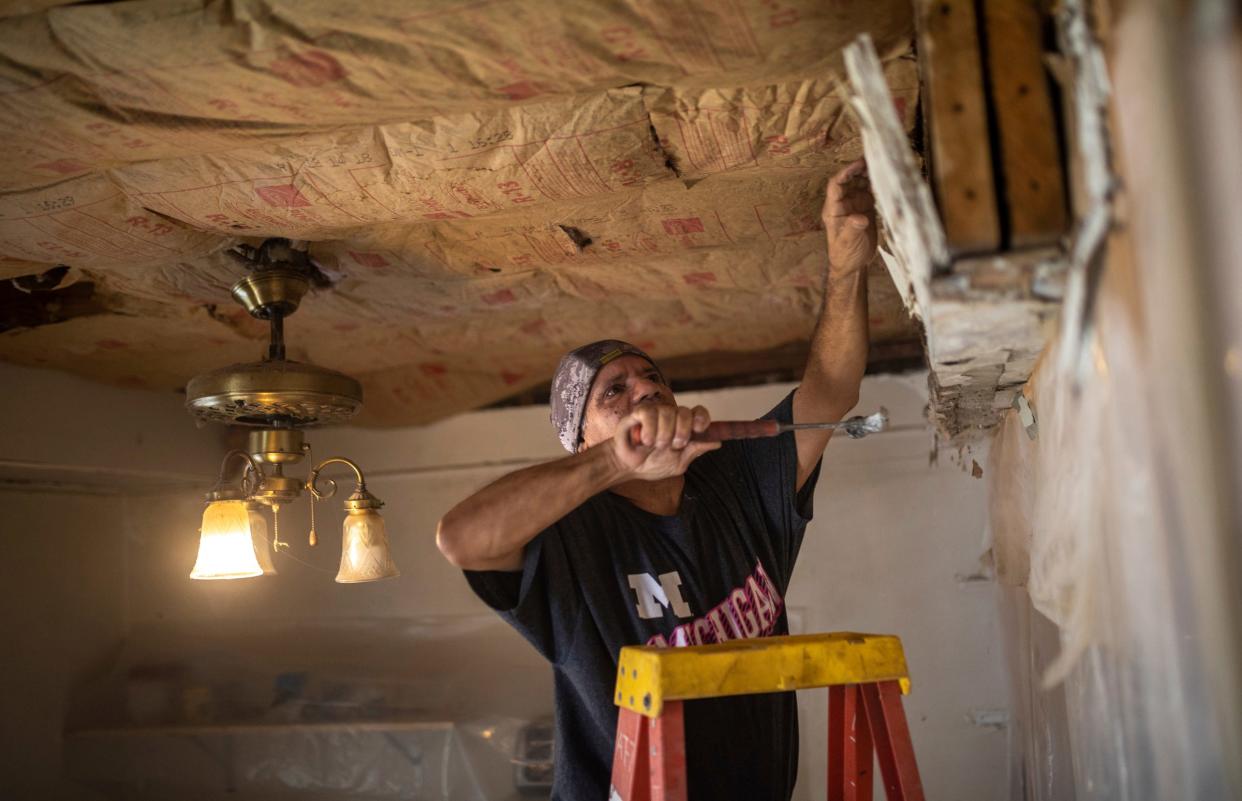
In an emailed statement, the state's UIA said it's committed to serving Michigan workers and each claim is different, with its own unique set of circumstances personal to each worker.
"There are a variety of reasons why an order from an administrative law judge may not result in immediate payment of a claim," Nick Assendelft, a spokesperson for the agency, said.
Assendelft said the UIA works cooperatively with the Michigan Office of Administrative Hearings and Rules, the state's administrative hearing system, and the Unemployment Insurance Appeals Commission but said they are separate from the UIA and follow their own processes and timelines.
He said if a claimant has questions about the status of their claim, the UIA encourages them to contact the agency to schedule either an in-person, phone or virtual appointment.
'We must ensure they receive the benefits they're entitled to "
In the early days of the COVID-19 pandemic, a new form of unemployment insurance was created when then-President Donald Trump signed the CARES Act into law. Called the Pandemic Unemployment Assistance (PUA) program, this new form of unemployment insurance extended benefits to workers not typically covered by traditional unemployment insurance, such as to freelancers, contract workers and self-employed workers, like Sanchez.
The CARES Act also added an extra $600 to traditional claimants' weekly benefit amount. In Michigan, the maximum benefit amount is $362 so claimants could receive up to $962 until the benefits expired in July 2020.
The messaging from state leaders and the federal government during those early months of the pandemic was this: Stay home, protect others and apply for unemployment insurance benefits.

"Michiganders everywhere have lost work because of COVID-19, and we must ensure they receive the benefits they're entitled to as quickly and efficiently as possible," Michigan Gov. Gretchen Whitmer said in a news release in May 2020after signing an executive order intended to expedite jobless benefits to claimants.
Many Michigan residents did just that. Nearly 2.5 million people applied for, and received at least some of the jobless benefits they qualified for, during the pandemic.
Many were denied. Others, as many as 1.83 million claimants, were approved for benefits and received them but were later told they weren't eligible amid evolving guidance on eligibility from the federal government. The UIA said those claimants had to pay the money back and in some cases, the agency clawed back money from those claimants. Collection activities were paused for these claimants late last year as part of a court order in a class-action lawsuit against the agency.
Others though, like Sanchez, were approved and haven't received any benefits. They're likely collectively owed millions of dollars in jobless benefits, attorneys say. An audited financial statement of the state's Unemployment Compensation Fund said the total amount payable to claimants pending review was about $130 million as of September 2022.
"That was a betrayal," said David Blanchard, an employment attorney who has represented claimants who sued the UIA over actions taken during the pandemic.
UIA's focus quickly shifts to fighting fraud
As Michigan's UIA and other states were experiencing a historic influx of claims, state agencies also were setting up three additional federal unemployment insurance benefits systems created during the pandemic, including PUA and programs that added $600 to claimants' weekly benefit amount, federal money that was later reduced to $300.
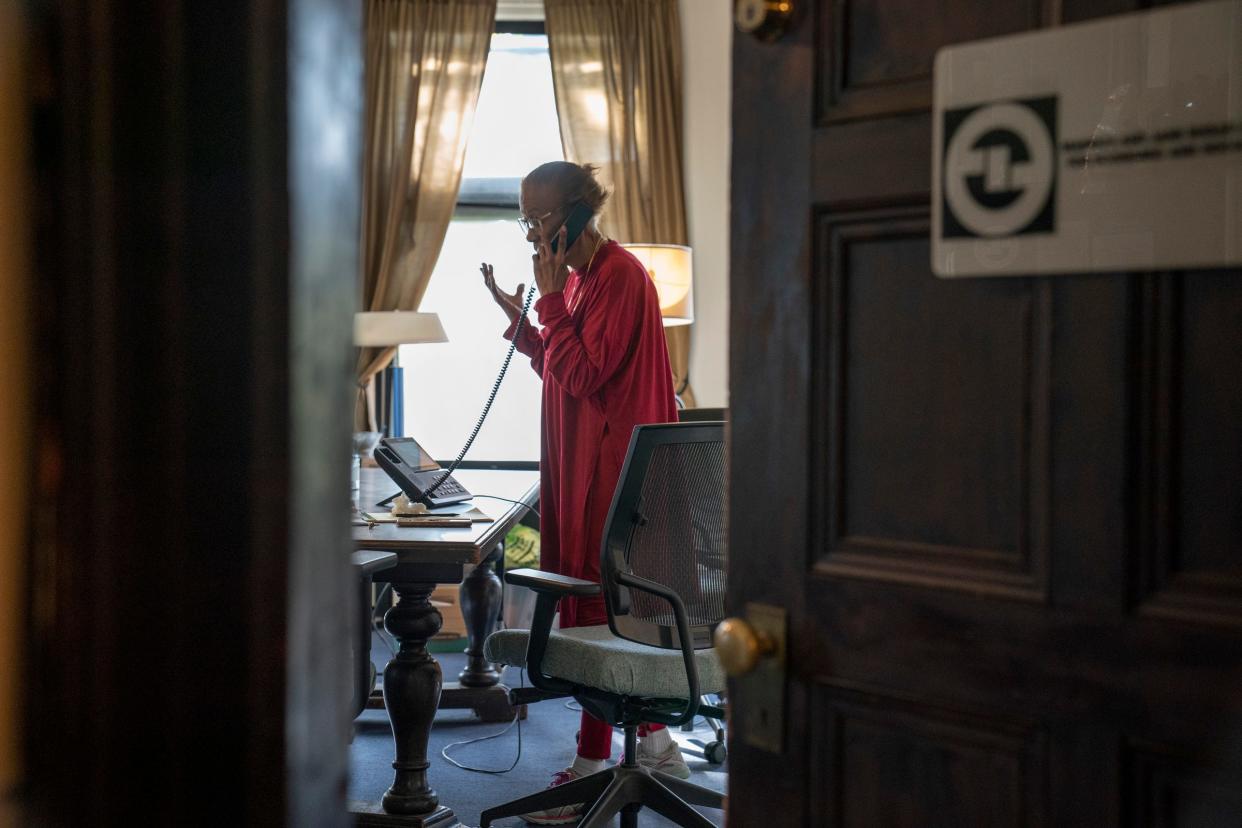
Employees at state unemployment agencies were simultaneously feeling burned out, Michele Evermore, a senior fellow at The Century Foundation, said. Evermore previously was the deputy director for policy in the newly formed Office of Unemployment Insurance Modernization in the U.S. Department of Labor.
As a result, turnover rates for these employees were high in the pandemic, and with that, a lot of that institutional knowledge was lost, she said.
Evermore also noted that many state unemployment agencies went through leadership transitions during the pandemic, leading to instability during a time of immense pressure on state unemployment insurance agencies.
Michigan is one of those states.
Steve Gray, the director of the state's UIA at the onset of the pandemic, departed in November 2020, a decision Whitmer called "a good thing" and an opportunity to move the overwhelmed agency in a different direction. Liza Estlund Olson, who previously served as the acting director of the UIA, took over that role again until the current director, Julia Dale, took over in October 2021.
As that was going on, criminals spotted an opportunity to take advantage of an agency that was being asked to get lots of money out to claimants quickly. As much as $2.8 billion was paid to claims likely involving imposter fraud in Michigan between March 2020 and September 2021, according to a report prepared by the accounting firm Deloitte for the state's UIA.
Across the U.S., as much as $135 billion of the $900 billion in benefits claims between April 2020 and May 2023 in the U.S. was likely illegally claimed, the U.S. Government Accountability Office said in a report released in September.
In Michigan, 158 individuals have been charged with fraud or identity theft, 79 people have pleaded guilty or have been convicted and 47 individuals have been sentenced, according to an unemployment insurance fraud landing page on the UIA's website that was updated at the end of July. Several people charged with unemployment insurance fraud were UIA employees.
The continued focus on fraud means getting benefits to those who filed in the pandemic and are still waiting has become less of a priority for states, Evermore said.
"States are highly tuned to overcorrect for fraud at this point," she said.
Attorneys continue to appeal favorable agency decisions
In Michigan, attorneys like Paris continue to appeal UIA decisions in order to get in front of an administrative law judge.
At a July hearing for Sanchez, which was rescheduled multiple times and postponed after the Detroit Free Press requested to join the phone hearing, an assistant state attorney general representing the UIA argued Sanchez wasn't eligible for benefits because the documentation he provided to prove his income had diminished due to the pandemic was inadequate.
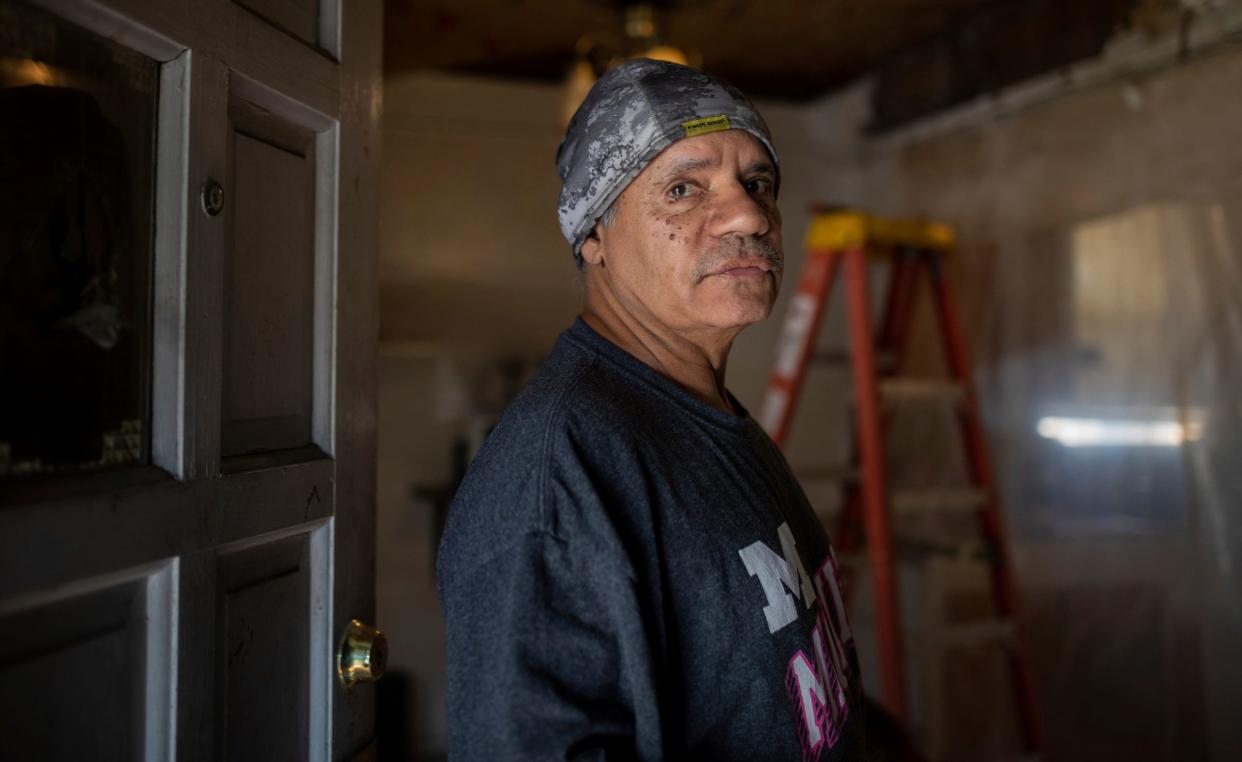
At issue in the hearing was the tax return Sanchez submitted as proof that he was self-employed. Sanchez used a tax preparer who submitted a joint tax return that listed Sanchez's wife's Social Security number at the top of the page.
"He should have had either a 1099 or a separate Schedule C with his Social Security number on it showing his portion of whatever that was for the income needed to be for him, not for his wife, with his name just listed down below," UIA Claims examiner Christopher Yake said on the phone hearing.
That was news to Paris.
Paris, in his response to Yake, said that’s confusing because Sanchez received multiple determinations from the UIA that said he had a fraud issue (not an issue with his tax return) because when Sanchez visited a local UIA office, his "foreign birth certificate included a name that he never used during the time of filing citizenship," according to a notice of determination from the agency that found him not eligible for benefits dated Oct. 19, 2021.
Sanchez is from Puerto Rico, a U.S. territory, making him eligible for unemployment insurance benefits. The name on his birth certificate is, "Rafael Sanchez Rivera." It's common for names of Spanish origin to have two last names.
The administrative law judge, in an opinion a few weeks later, ruled that he was eligible for benefits.
He has yet to receive them.
Appealing to higher courts is an option but takes longer to resolve
Paris could escalate the case to circuit court, which he has for another one of his clients. However, a Wayne County Circuit judge dismissed that case in September for a lack of jurisdiction and said this matter would need to be handled with another court, Paris said.
Filing lawsuits in state and federal courts is another option.
That’s what Blanchard has done on behalf of his clients who are still waiting on benefits. Blanchard represented several claimants who filed a lawsuit against Michigan's UIA in August 2022 because they had not received all the benefits they were entitled to in the pandemic, if at all.
The claimants argue that their due process rights were violated when benefits were frozen without notice or opportunity for a hearing. They asked the U.S. District Court for the Eastern District of Michigan to order the UIA to take all actions necessary to ensure the prompt payment of unemployment benefits and grant damages to the plaintiffs to compensate them for the harm incurred.
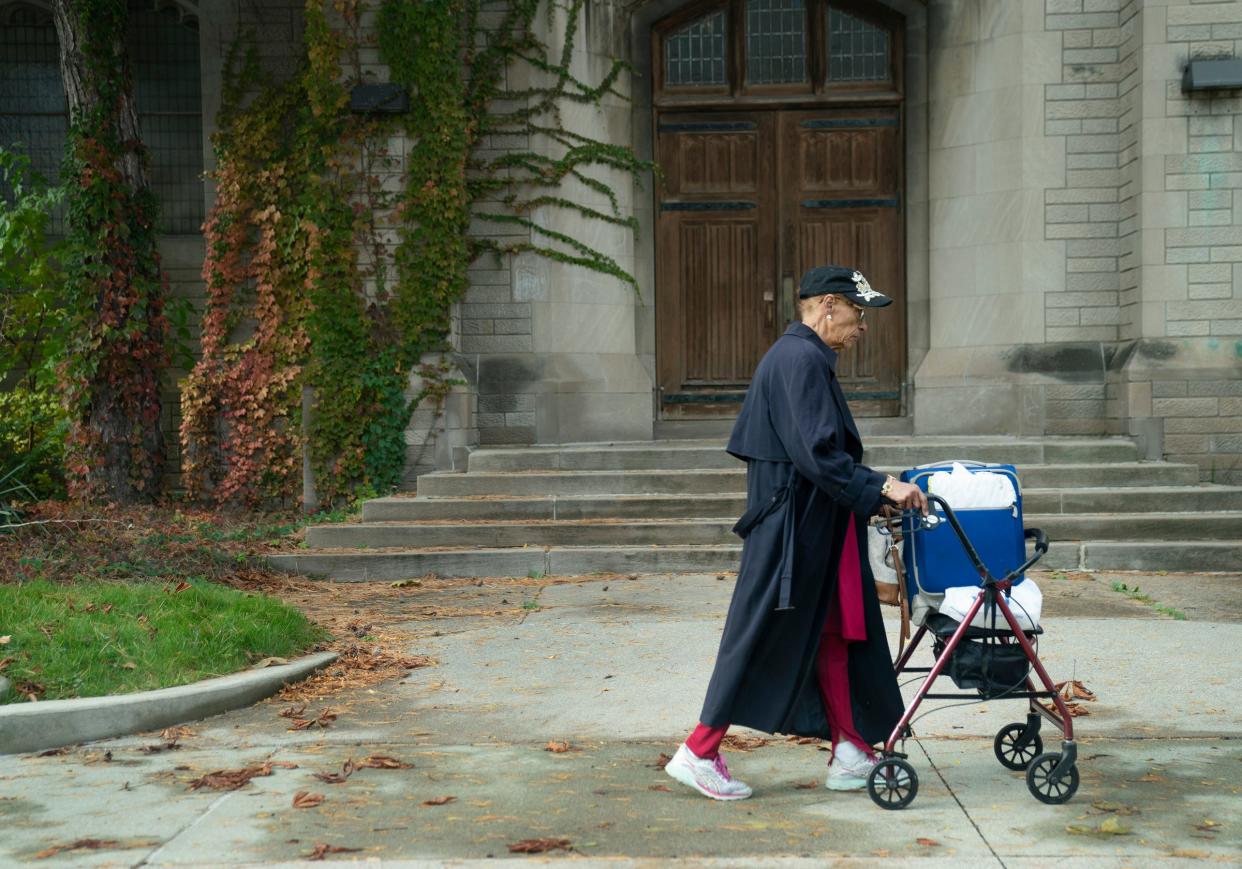
A federal judge in July allowed the lawsuit to move forward after the UIA tried to get the suit dismissed.
These lawsuits can often take years to resolve.
An earlier unemployment insurance lawsuit filed in 2015, which argued that the state's automated jobless system falsely accused thousands of Michigan residents of fraud and which resulted in the seizure of paychecks, income tax refunds and other assets, was settled with the state of Michigan a year ago, nearly seven years after the lawsuit was filed.
It's not a perfect solution, Blanchard acknowledges, but using the false fraud scandal as an example, he said the outcomes of the lawsuits can help to prevent the UIA from taking similar actions in the future. A lawsuit he filed in federal court on behalf of claimants who were falsely accused of fraud was settled in 2017 and resulted in codifying steps to make sure there is a basis to suspect fraud before taking further action.
"Whether it's another recession, or another pandemic, or something else we can't fathom, or other disaster relief, the agency ... fell down in what it calls a 'Black Swan event,' " Blanchard said, referring to the term that is used to describe an unpredictable event with potentially severe consequences. "How do we make it so (the UIA doesn't) fall down in the next Black Swan event, so that Michiganders are protected, so that our economy continues?"
Paris, though, said his clients need the money now.
Meanwhile, claimants are struggling
Haydn Jacobs, 75 and a Royal Oak resident, said his health is rapidly declining but he's continuing to work as a painter because he doesn't have enough money to retire.
Jacobs, also a client of Paris, received some unemployment benefits but hasn't received the $27,000 he was owed. He was recently able to certify for those weeks but he still hasn't received the money.
The never-ending fight with the UIA resulted in him contemplating suicide last winter, he said.
"I feel betrayed by the government," Jacobs said.
Sanchez, meanwhile, ended up in the hospital last year due to stress.
"I got no money coming in," he said. "It’s tough. I don’t know what’s going to happen with unemployment."
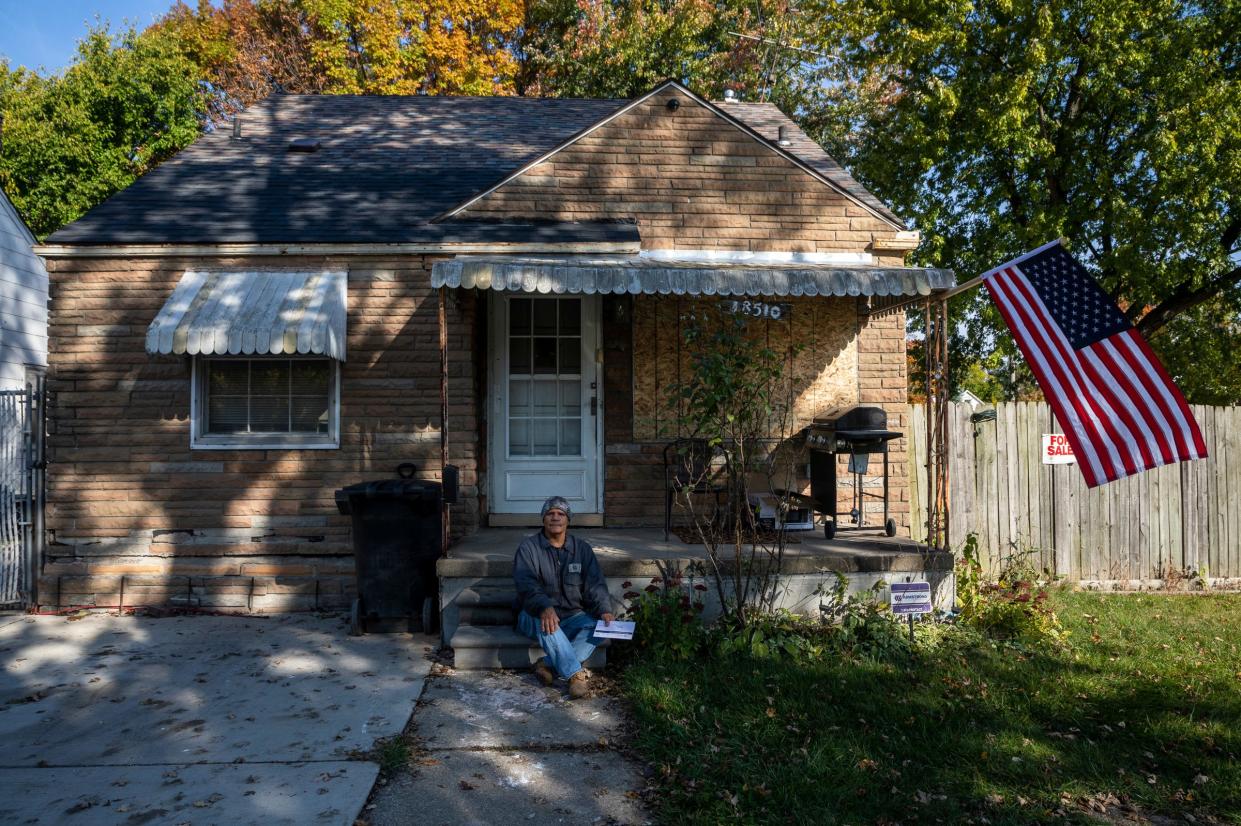
As auto repair work was barely trickling in as the pandemic stretched on, he filed for unemployment with the assumption that the money could be used to buy a nicer house and retire.
Instead, Sanchez spent many days throughout the pandemic going to the library to get on a computer to check if there were any updates on his online unemployment insurance account and to a Staples store so he could use the company’s fax machine to send over pictures of himself holding his ID to complete the agency’s identity verification requests.
The money never came.
"I don’t sleep at night thinking about what’s going on," Sanchez said. "It really stresses me out. It’s like a never-ending battle."
Contact Adrienne Roberts: amroberts@freepress.com.
This article originally appeared on Detroit Free Press: Michigan workers are still fighting for pandemic unemployment benefits
